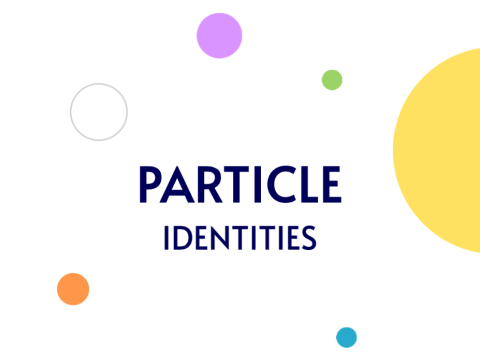Particle Identities

Take the personality quiz to find out which elementary particle you are.
Description
Particle Identities is an online personality quiz developed by the S'Cool Lab team using the open-source GDevelop engine. The quiz helps users explore the properties of elementary particles in a fun and engaging way. This quiz is available in many languages thanks to volunteer translators, and all particle visuals are kindly provided by The Particle Zoo. Each result introduces a real particle and its basic characteristics, offering a playful entry point into particle physics. You can start the quiz by visiting the Particle Identities quiz page.
Scientists at CERN study the properties of elementary particles and how they interact. You can learn more about CERN's research programme by visiting this CERN website.
Material list
- Internet connection.
- Smartphone, tablet, or computer.
Instructions
- Access the Particle Identities quiz online: cern.ch/identities.
- Follow the on-screen instructions to complete the quiz and discover your particle identity.
Ideas for Educators
- Take the quiz: Have your students go through the online quiz on their own to find out which particle fits their personality best.
- Write a particle ID card: Encourage students to research the particle further. They can create an ID with details such as name, symbol, mass, charge, and year of discovery.
- Compare particle ID cards: Have students compare their particles, which particles share similar properties or which particles can interact with each other because they have the same type of charge.
- Play the quiz inversely: Once students understand the different particle properties, they can play the quiz in the other direction. How do you need to answer the quiz questions to end up as an anti-strange quark? or an electron? or an electron-neutrino?
- Can you find dark matter? A certain (hard to find) answer combination will disclose a hypothetical particle no one has discovered yet, so-called dark matter.
Related resources
- Read more about the Standard Model of Particle Physics and its compact description, the so-called Lagrangian, here: Woithe, J., Wiener, G. J., & Van der Veken, F. F. (2017). Let’s have a coffee with the Standard Model of particle physics! Physics Education, 52(3), 034001.
- Particle card game: To get familiar with the different elementary particles, students can use the particle cards developed by Netzwerk Teilchenwelt in the framework of different activities such as sorting exercises, triplet game, four corners game. A set of 61 particle cards is available in German, English and Spanish. You can find a description of the cards and ideas for different games in English here.
- Offline version of the quiz: Available for Windows , macOS and for Linux.
- Windows: Double click on the executable file to launch it.
- macOS: Control-click (or right click) the app icon, click on service, then choose open.
- Linux: Option A (command line):
chmod +x Particle_Identities.AppImage. - Option B (GUI):
1. Right-click on the Particle_Identities.AppImage.
2. Click "Properties".
3. Switch to Permissions tab.
4. Tick "Allow executing file as program".
5. Close the dialog and double-click the Right-click on the Particle_Identities.AppImage file to run it.